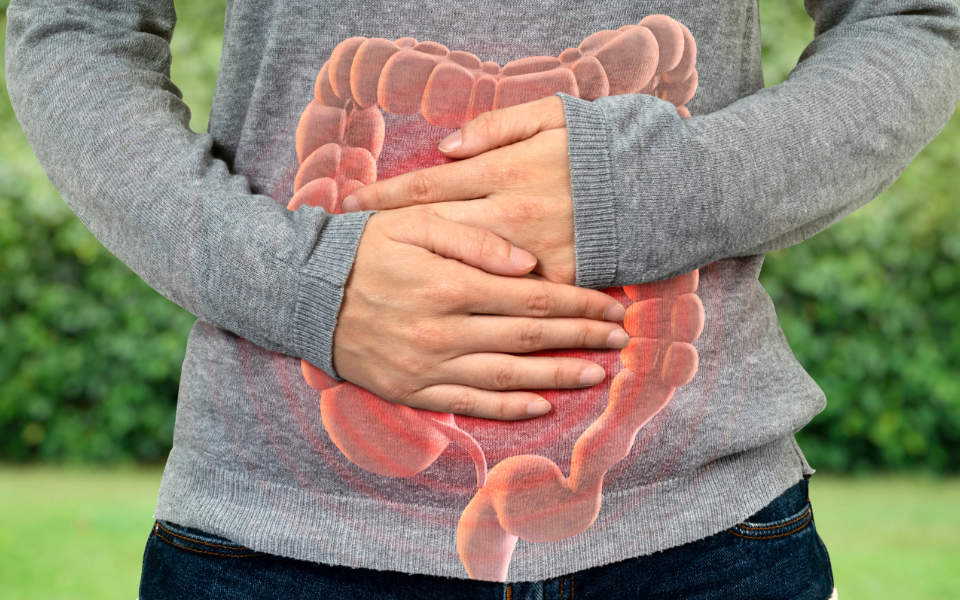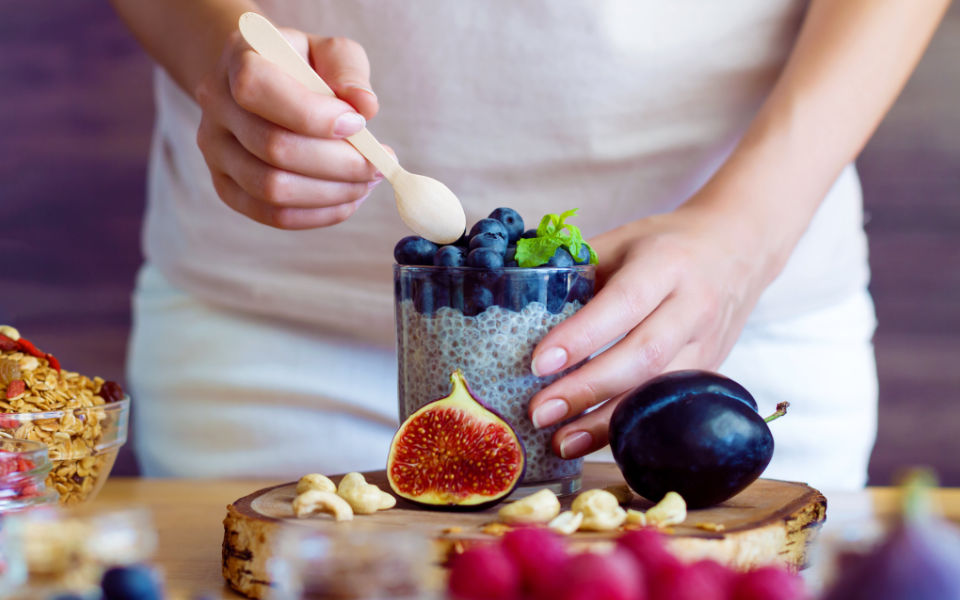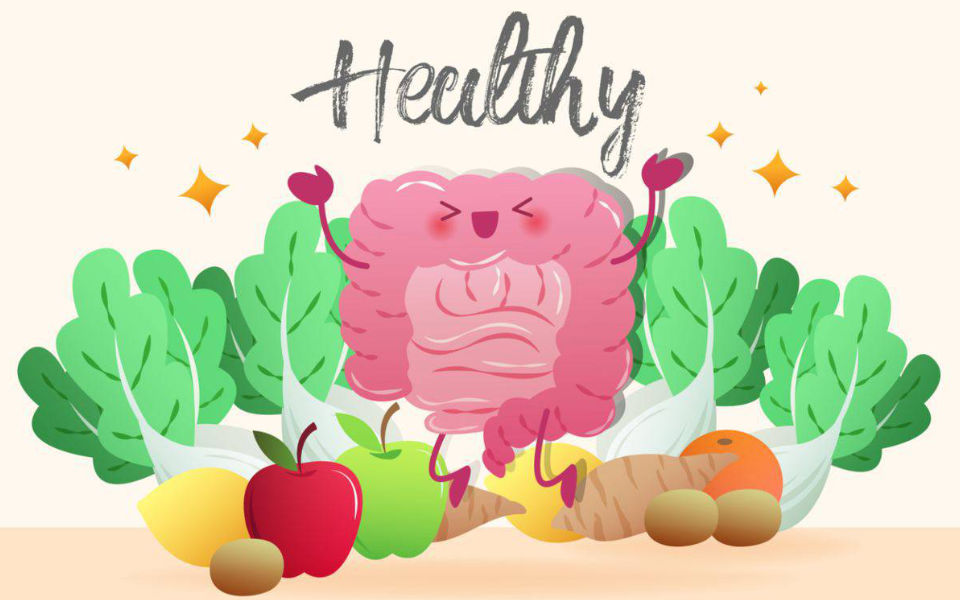Why am I Feeling ‘Gutted’
Do you constantly feel burnt out and fatigued no matter how much you rest or sleep? Does your favourite snack in the world no longer appeal to you as it rips straight through your chest every time you have it? Do you no longer look forward to steak days with friends because your stomach is literally screaming for help after? Are you often too depressed to even get out of bed? Do your own bowels betray you every time you go to the toilet?
If what’s mentioned above perfectly describes your life at the moment, it’s high time you realised that the direction where your life is headed is certainly not the right one. The life choices you are making are clearly not doing any good to you. So before you fall into this hole that you are digging up for yourself, better kickstart your transformative journey today. How? By focusing on that one thing that can single handedly change your entire life for good – your gut.
The human gut has recently emerged as a hot topic among the health community, and for all the right reasons. With the increasing amount of research dedicated to this field, people are finally realising the importance and respect it deserves from us. After all, the gut alone handles some of the most important processes crucial for health, like immune modulation, mental processing, and of course, many different physical parameters.
So why not do something to reward your gut? Why not take steps so you never have to feel “gutted” ever again? Now is your time to take charge of your gut, and treat it like a temple that it is.
This article will help you exactly how you can make your gut your best friend by adopting a gut-focused lifestyle. It will teach you how to start loving your gut and how to make it love you back for a healthier, happier, and stress-free life!
Let’s begin.
Your Gut, Explained

When we use the word ‘gut,’ what we mean is a set of digestive organs as well as the microbes that live inside them. Collectively, this entire system is responsible for running multiple crucial functions inside the body like:
- Breakdown and digestion of food
- Absorption of important nutrients, minerals and vitamins from food
- Protection of the body cells from germs and outside intruders
- Regulation of mood and feelings
It’s astounding to know how the gut alone is responsible for so many things inside your body. So naturally, the next question that comes into your mind is how? How does the gut handle all these duties so efficiently? To answer this question, you need to demystify the gut by identifying its different parts, how they function and connect to other parts of the body.
1. A Journey Through Your Bowels
a) Mouth
Ever felt that uncontrolled urge to salivate whenever you see that slice of pizza you’re about to devour on? That’s the mark that your gut has started working. The saliva you secrete acts on the delicious pizza to break it down before passing to the next organ
b) Oesophagus
As soon as you swallow your precious pizza, it enters the oesophagus. The oesophagus delivers the food from your mouth to your stomach by alternatively contracting and relaxing.
c) Stomach
Between your oesophagus and small intestine lies the stomach: an organ with lots of enzymes and acids that immediately acts on the incoming food and breaks it down piece by piece.
d) Intestines
Consider intestines as an orchestra conductor: it sends signals about digestion to your entire body. As soon as it receives food from the stomach, it signals the pancreas and gallbladder to send over their digestive juices while absorbing nutrients from the food straight into the bloodstream.
e) Colon
Where intestines end, the colon begins. By the time your pizza arrives in the colon, it is pretty much nothing but undigested waste ready to be expelled out. The colon’s job is to add bulk to it so that it can be passed out smoothly.
f) Rectum
The rectum is like the stool collection point which keeps it all in until you are ready to defecate through the anus.
2. Meet Your Gut Microbiome
Did you know that there is a unique assortment of organisms thriving inside your gut ever since you were born? Scientifically known as the gut flora or gut microbiome, it includes up to 100 trillion cells of fungi, viruses, and bacteria. These little copilots control a lot of what happens within your body: from those depressing thoughts, you always struggle with to the chances of you finally being able to fit in your favourite dress. Their regular duties include killing harmful microbes, breaking down food, modulating immunity, regulating bowel movement, and improving stool consistency, to name a few.
There’s a whole different world fitted inside your gut, with the good and the bad bacteria. The diversity is so much that your tiny little gut can even beat the extensive flora and fauna of the great Amazon rainforest.
From the second you are born, your tiny little gut microbiome is exposed to a lot of stress. This stress can come in various forms, like artificial sweeteners, pesticides, medicines, and heavy metals. On top of that, what you choose to put in your belly also greatly determines the composition of your gut microbiota. Any tweaks in the compositions and ratios of these gut bacteria can wreak havoc on your entire health in the form of weak immunity, acne, and problems with digestion. And if that’s not all, evidence has also shown a definitive link between gut bacteria and mental health.
Feeling bad for neglecting such an important element of your body all your life? Don’t stress out! You still have a shot to befriend your gut and move on to a much better life, and in the next sections, we will discover how.
The Mandatory Gut Check

Ready to tune into what good gut health feels like? To establish that, you need to be aware of the signs and signals of your body. Once you learn how to spot them, it’ll become easier to respond to your body’s needs more fully and quickly. In most cases, a few adjustments here and there are enough to make a difference, but at the same time, you must know when to seek professional help as well.
1. Manifestations of Poor Gut Health
If you have great energy levels, easy bowel movements, and no signs or symptoms like belly pain, indigestion, heartburn, and bloating, chances are you have a happy gut. Problems begin when these symptoms begin to creep in slowly and ultimately join forces to wreck and ruin your gut.
Because everyone has a unique composition of gut bacteria, the health issues related to it can present differently. Let’s learn about the most common issues that might indicate that you suffer from poor gut health.
a) Irritable Bowel Syndrome
Also known as IBS, the most common symptoms of this condition include abdominal pain, diarrhoea, bloating, gas, and constipation.
b) Acid reflux
The symptoms of acid reflux include gas, belching, feeling uncomfortable after eating, a burning sensation in the stomach area, vomiting, and nausea.
c) Issues with gall bladder
If something’s not right with your gall bladder, the problem may present itself in the form of diarrhoea, constipation, pale stools, pain after meals, and yellowing of the skin.
d) Autoimmune Diseases
Over 100 different diseases related to an abnormally functioning immune system have been pinpointed so far. While most of them often have a genetic element, many are also linked with gut health and the microbiome. These diseases include asthma, eczema, lupus, and multiple sclerosis. While not many of them exhibit any digestive symptoms, they can be surprisingly controlled by making positive tweaks in your diet and gut health.
e) Leaky gut
A syndrome characterised by skin changes, bloating, fatigue, and increased sensitivity to certain foods, leaky gut is a disastrous consequence of abnormal gut microbiota. Therefore, the only possible way to manage it is to correct this abnormality as much as you can. This concept formed the basis of the famous leaky gut diet that has been helping people get over this issue by balancing their gut health and flora.
f) Mental health issues
Do you know that your gut health and mental health are closely related? If your gut health is compromised, it forces your immune system to send an alarm signal to the brain. With an out-of-balance diet and faulty gut microbiome, these signals become so frequent that it causes a storm of inflammation and stress inside the body. All these factors closely link the gut bacteria and mental health, with any abnormality in the former leading to problems like anxiety and depression
g) Skin problems
What’s common between your skin and gut? Both defend you from pathogens by forming a protective barrier. Just like the gut, your skin also has its own microbiome which is directly influenced by the one in your gut. So when something bad happens inside your gut, it eventually shows up on your skin in the form of acne, allergies, itchiness, eczema, and even wrinkles. This is what experts term the gut-skin axis.
2. Identify Your Symptoms
Keeping a track of your symptoms and how they change is important to monitor any progress. For this purpose, you can use a Symptom Tracker Chart that helps you pinpoint the symptoms you are experiencing, their frequency, and the triggers that you think maybe causing it. The chart is provided below for your assistance.
| Symptom | Never | Sometimes* | Frequently** | Food triggers |
| Diarrhoea (Liquid stools that occur 2-3 times a day or more) | ||||
| Light coloured stools (Tan or pasty coloured) | ||||
| Constipation (Bowel movements are hard lumps, difficult to pass, and infrequent) | ||||
| Bowel urgency (Difficulty making it to the bathroom in time) | ||||
| Bloating | ||||
| Bleching | ||||
| Heartburn (Bellypain, acid in the mouth, burining in the eosphagus) | ||||
| Flatulence | ||||
| Indigestion (Discomfort after meals, sour feeling in the stomach) | ||||
| Nausea and/or vomiting | ||||
| Belly pain | ||||
| Brain fog | ||||
| Anxious feelings in the gut | ||||
| Body aches and pain | ||||
| Other |
*Sometimes: (Weekly or 2-3 times a week) **Frequently (Daily)
Remember to visit this chart every day for three weeks. As you fill it up, focus on how your gut feels along with your energy levels, mood, and overall health. Notice if your symptoms are associated with any particular situation or time as it can help with formulating a suitable management plan later on.
Healing Your Gut with Nutrition

The biggest thing that you can do to better your gut health is to be wary of what you eat throughout the day. If you eat like most people i.e., two to three times a day, you have plenty of opportunities to nourish your digestive cells as well as microbiome with healthy nutrients.
Did you know that your intestinal cells keep renewing themselves every five days or so? What this means is that whatever you choose to eat can help your gut health or even destroy it in less than a week. So make sure you eat carefully with lots of gut healing foods.
1. Top Dietary Guidelines
If you wish your gut bacteria to flourish and your deteriorating health to take a U-turn, you need to start eating foods good for gut health. The following guidelines can help you understand what such a diet looks like and how you can choose the best gut health foods.
a) Eat fermented foods for gut health
If you are a fan of kimchi, sauerkraut, or kombucha, it is the right time to embrace your love! Fermented foods for gut health are a big yes as they are the best source to get probiotics and the perfect thing to show your intestines that you really care.
b) No skimping on protein
You cannot expect to follow a balanced diet without including proteins in it. Your intestinal cells need them to nourish and maintain themselves. So make sure you eat enough fish, chicken, grass-fed meats, nuts, and legumes.
c) Eat the rainbow
Make your very own antioxidant-rich food rainbow now. Get your blue from currants and eggplants; green from leafy veggies, red from tomatoes, yellow from organic corn and pineapple, and orange from citrus and pumpkin. Don’t forget to add these gut healing foods to your daily diet.
d) Remove triggers for leaky gut
There’s nothing worse than suffering from the torment of a leaky gut. So before your gut encounters this issue, make sure to remove anything that may possibly trigger it in the future. For this purpose, keep in close touch with the famous leaky gut diet which helps you minimise all possible triggers leading to this gut issue. These triggers may include:
- Gluten-rich foods like rye, barley, and wheat
- Certain medications like ibuprofen
- Artificial sweeteners
- Condiments and additives like malt vinegar and soy sauce
- Alcohol
- Processed sugar
e) Load up on fibre-rich foods
One cannot simply claim to formulate a perfect gut health diet plan without adding any high-fibre foods to it. So while you are trying to perfect your gut health, make sure you eat plenty of fibre-rich veggies like turnips and potatoes. And for some extra kick of antioxidants, throw in some plant seeds and nuts.
2. Miscellaneous Tips for a Happier Gut
While it’s important to adopt new habits to make your gut happy and healthy, there are certain things that you need to avoid at the same time. Mentioned below are all these things that are a big no-no when it comes to maintaining good gut health:
a) Don’t take coffee too seriously
Too much caffeine in your system is only going to make you anxious, disturb your sleep, and even alter your gut flora. So keep tabs on how much coffee you drink through the day and don’t let it get out of hand.
b) OTC medicines for the gut are off-limits
Using laxatives, stool softeners, or medications for diarrhoea can provide you relief, but it’s all temporary. In the long run, you are only going to end up getting entirely dependant on them and may even lose muscle and nerve response in the gut in the process.
c) Don’t forget to drink water
What can I drink to clean my gut, you may ask? Behold, as we unleash upon you the power of water. If we are to make a list of gut friendly foods, water is probably going to be on the top. It is calorie-free, non-irritating and you cant simply have enough of this fluid. So keep your water intake high and wait for those gut irritants to take a smooth ride out of your body.
d) Chew properly
The more you chew, the better. Why? Because these simple mouth movements lead to better digestion and can even prevent obesity in the future. Astonishing, isn’t it? But that’s what research suggests, so better start chewing right away.
e) Do not fear food
It is common for people undergoing a transformative journey to start fearing certain elements in food. One word for such people: STOP! The goal is to identify which foods work best for you so you can focus more on them while limiting the ones that don’t. It certainly doesn’t mean you start fearing food for the rest of your life. And while you are at it, remember that you are aiming to identify what works best for you, not embarking on restrictive diet plans to follow for the rest of your life.
3. Top 5 Gut Friendly Foods
There is plenty of evidence supporting the digestive benefits of the following five best foods for gut health. So make sure they dominate your daily meals as much as possible:
a) Wild sardines
As a source of plenty of vitamins, proteins, minerals, and omega-3s, the importance of including wild sardines into your daily diet cannot be emphasised more. Evidence suggests that the consumption of this food can well optimise the microbiome in people with diabetes.
b) Ginger
There cannot be a better source of antioxidants for your gut than some fresh ginger root. Research has also shown that it enhances nutrient absorption while providing digestive enzymes to the gut.
c) Raw sauerkraut
Raw sauerkraut alone can provide as many as 114 different strains of probiotics for gut health making it the biggest gut-healing superstar of all.
d) Mushrooms
Next in the line for the top gut health foods are mushrooms. Mushrooms are loaded with gut healing minerals like zinc and selenium. What’s more, they have lots of prebiotic fibre for your gut friends to feed on. Lastly, mushrooms can even contribute to the diversity of your gut microbiome.
e) Broccoli sprouts
As another potent source of antioxidants, do not forget to load up your meal plate with broccoli sprouts. Studies suggest that it helps in the management of constipation while flushing out toxins to heal the gut, particularly owing to the presence of sulforaphane in its composition.
So what are you waiting for? Start filling your tummies with these 5 superfoods today. And if you wish to accomplish, even more, we have a special gut health diet plan mapped out for you in the following section.
The Microbiome Diet

Though multiple gut health diet plans have been suggested over time, one of them has recently attracted the attention of many. Termed as the Microbiome Diet, it is a stepwise approach formulated by Dr. Raphael Kellman to restore your gut health and regulate body weight. Dr. Kellman is a licenced practitioner who has been helping patients manage autoimmune conditions and digestive dysfunctions at the Kellman Centre for Integrative and Functional Medicine.
As the founder of the Microbiome Diet plan, Dr. Kellman firmly believes that an imbalanced gut flora leads to unhealthy cravings for sugar and processed foods. On the other hand, more balanced gut bacteria encourage eating healthy while keeping these dangerous cravings at bay. Keeping this simple principle in mind, he has come up with a way to balance your gut microbiome and attain a good state of health in three phases. The entire diet plan focuses on foods good for gut health like vegetables, fruits, lean protein. On top of this, it also encourages the use of gut health supplements and probiotics to nourish healthy intestinal bacteria and allow them to grow and thrive.
The Three Phases of Microbiome Diet
Let’s briefly discuss what the three phases of the Microbiome Diet look like.
Phase 1: The Four R’s
The first and most restrictive phase of this diet can be challenging for most people. Extending over 21 days, it is all about cutting off several presumably healthy foods from your diet, including eggs, dairy, grains, soy, and starchy fruits and veggies. Additionally, refrain from artificial sweeteners and packaged foods while focusing more on organically sourced foods that provide lots of prebiotics and probiotics for gut health.
That sounds like a lot to do, right? Keep the following four R’s in mind to make it easier to follow and remember:
Remove all food items that may imbalance your gut flora, including antibiotics, added sugars, and processed foods
Repair your gut by consuming plant-based foods and supplements for gut health
Replace your digestive enzymes and stomach acid frequently with suitable herbs, spices, and gut health supplements
Reinoculate the beneficial bacteria in your gut by eating foods rich in prebiotics and probiotics. Alternatively, you can also choose a supplement to augment the effects. The later sections of the article will help on how to choose the best probiotic for gut health.
It is generally recommended keep away from eating the following foods during this three-week-long phase:
- Soy
- Packaged food
- Gluten
- Artificial sweeteners
- High-fructose corn syrup
- Food colours/fillers
- Eggs
- Corn/potatoes
- Hydrogenated fats
- Peanuts
- Deli meat
- Fried foods
- Fish with high mercury levels
- Grains
- All types of legumes except lentils and chickpeas
- All dairy except ghee and butter
Phase 2: The Metabolic Boost
Once you are past the 21 days of food restriction that helped your gut grow stronger, you can successfully enter the next phase. Phase 2 of the Microbiome Diet focuses on boosting your metabolism and while it allows certain food items to be added again in moderation, you still have to avoid most of them for proper gut healing.
For the next four weeks of phase 2, you must continue to omit the gut damaging foods as before while adding the following back to your diet in moderation:
- Dairy products made from goat or sheep’s milk, including cheese and yogurt
- All types of kefir
- Some fruits, including peaches, melons, and pears
- Organic eggs
- Legumes, including black beans, green beans, kidney beans, and red and white beans
- Yams and sweet potatoes
Phase 3: The Lifetime Tune-Up
As you enter phase three, your gut must already be healed or almost close to full recovery. In this phase, your focus should be to maintain the gut health benefits you achieved in the last two stages of the Microbiome Diet. You can still add back a couple of more food groups but slowly and with proper monitoring.
Gut Health Supplements That You Cannot Miss
You ask: Do I really need a supplement for my gut? And we answer: Why not?
Supplements can do miracles if you choose them carefully and use them properly. So what is the best gut health supplement that you can rely on? Feel free to choose from the following:
1. Vitamin D
The sun is the major source of vitamin D for most of us. As simple as that sounds, many people still struggle to manufacture enough of this vitamin on their own due to various reasons.
Vitamin D on its own has a lot of roles inside the body: regulating gut barrier, modulating the immune responses, controlling inflammation, and even nourishing the gut bacteria: all the more reason why you should start taking it right now.
2. Glutamine
As we discuss some of the best supplements for gut health, glutamine is something that cannot be missed out. Research has proven that glutamine can be one of the best foods for gut health because:
- It positively impacts the gut flora
- It maintains the integrity of intestinal lining and barriers to control problems like leaky gut
- It keeps gut inflammation under control
3. Zinc
A restrictive diet, too much inflammation, excessive diarrhoea, and a lifestyle dominated by processed foods can all contribute to zinc deficiency; something you do not want that for your gut. When the zinc levels in your body fall too low, the intestinal barrier starts falling apart, contributing to problems like leaky gut. And you certainly don’t want that, do you? So start taking a zinc supplement today.
4. Magnesium
Looking for the best gut health supplement? Start popping some magnesium pills right away. A low level of magnesium can decrease the gut microbiome diversity and interfere with mineral absorption. Your body may take several months of supplementation to restore a normal magnesium balance so better start right away.
5. Probiotics
Wish to reward the bacteria camping inside your intestines? Try using probiotics for gut health now. Among the numerous health benefits attributed to probiotic supplements, research proves that they can maintain healthy bowels, promote gut health, improve immunity, support skin health, and maintain a healthy weight. Consider them as little helpers that contribute to restoring law and order within your gut ecosystem.
Remember that the best probiotic for gut health will have the following features at the very minimum:
- At least 1 billion CFUs
- Multiple bacterial strains, particularly Bifidobacterium, Lactobacillus, and Saccharomyces boulardii
- A dairy-free composition
- Long shelf-life
Always remember to take it slow to give your body a chance to adapt to them. Side effects like bloating and gas may occur initially but will subside on their own later on.
Conclusion – Healthy Gut Healthy You
Food is life, and it cannot be emphasised more. Whatever food choices you contribute to what you look like, how you feel, your daily energy levels, your pattern of sleep, how much power you have to fight off infections and diseases, and pretty much everything about your life.
Millions of individuals across the globe continue to live with deteriorating gut health leading to several uncomfortable digestive problems. For some, it is only occasionally annoying but for others, these issues can be gut-wrenching, in a literal way. And irrespective of where you are positioned in this spectrum, it is time to take matters into your own hands.
Educate yourself about food; know what choices you need to make to stop your gut from suffering. This does not mean committing yourself to a life-long plan of eating bland and boring food. You can still make your gut happy while fulfilling your guilty pleasures every once in a while. The only difference is that this time, you’ll know exactly what you are filling up your belly with, how to proceed with it, and when to stop before your issues start flaring up in your gut.
Remember, it all depends on what works best for you. So take the charge and start making a difference today!


